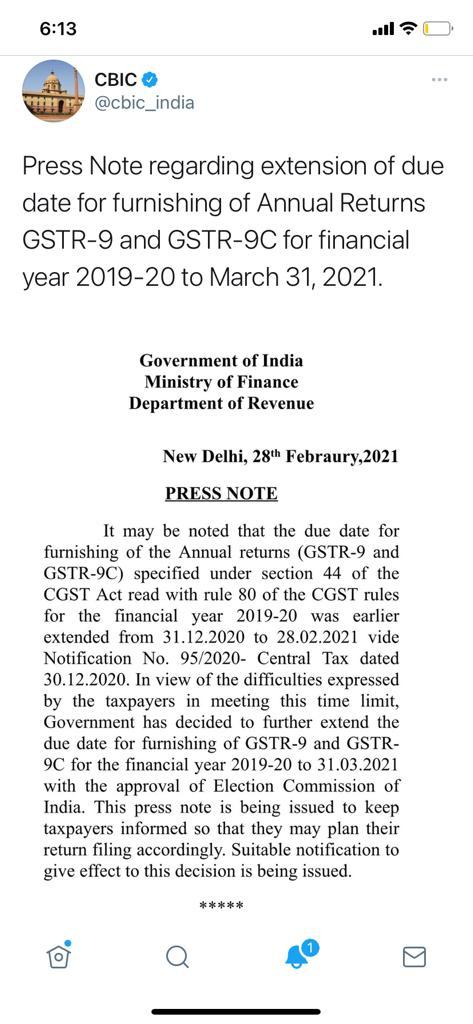
The year 2021 has come up with the various changes in Goods and Service Tax (GST) Rules which will have a direct impact on the business registered under the GST regime and the businessmen who are planning to get themselves registered under GST.
Firstly, the CBIC has revised the extent of provisional Input Tax Credit (ITC) claims from 10% to 5%, with effect from 1 January 2021.
Firstly, the CBIC has revised the extent of provisional Input Tax Credit (ITC) claims from 10% to 5%, with effect from 1 January 2021. As per the sub-rule (4) inserted in rule 36 of the Central Goods and Service Tax Rules, 2017, a taxpayer filing GSTR-3B can claim ITC only to the extent of 5% of the eligible credit available in GSTR-2A. The amount of eligible credit is arrived upon those invoices or debit notes, the details of which have been uploaded by the suppliers in the GSTR-2A only. The new percentage applies from 1 January 2021 onwards. The ITC claim was earlier restricted to 10% between 1 January 2020 and 31 December 2020 whereas it was 20% for the period from 9 October 2019 till 31 December 2019.
Secondly, the CBIC has amended the Rule 21, which is in respect of the suspension or cancellation of GST Registration. The amendment inserted the additional situation wherein the registration of a person can be suspended if he avails input tax credit in violation of the provisions of section 16 of the Act or the rules; or furnishes the details of outward supplies in FORM GSTR-1 for one or more tax periods which is in excess of the outward supplies declared by him in GSTR 3B for the said tax periods, or violates the provision of rule 86B.
Thirdly, the Board inserted Rule 86B wherein all the registered persons have to pay 1% cash liability so as to curb tax evasion by way of fake invoicing. The Rule 86B is applicable to only those registered persons whose value of taxable supply, other than exempt supply and export, in a month exceeds Rs 50 lakh that means those whose annual turnover is more than 6 crore.
For example, if a dealer has made a sale of Rs 1 crore of the goods whose tax rate is 12% and if he is discharging his tax liability more than 99% though ITC, then he has to pay only Rs.12,000 under this rule. On the other hand, a composition dealer would have paid Rs.1 lakh in cash with this volume of sale.
Fourthly, the CBIC has amended Rule 8 and 9 which pertained to New GST Registration, which provides for the biometric verification i.e. Aadhaar authentication and taking photographs or taking biometric information, photograph and verification of such other KYC documents for the applications for new registration.
However, in the case of those opting not to use Aadhaar, GST registration would be given only after physical verification of the business premise, which could take upto 21 days and in case a notice is issued, even more time.
Fifthly, the Board has amended Rule 59, not to permit the taxpayer to file GSTR 1 if the taxpayers have not furnished the return in FORM GSTR-3B for the preceding two months (for a taxpayer filing monthly returns); he has not furnished the return in FORM GSTR-3B for preceding tax period (for a taxpayer filing quarterly returns) and he is required to discharge the tax liability of at least 1% by cash (see the discussion on Rule 86B) and he has not furnished the return in FORM GSTR-3B for preceding tax period instead of two months.
Sixthly, the CBIC has amended Rule 138(10) which related to E-way Bill wherein the available travel time has been enhanced to 200 Kms. For example, goods dispatched to the destination located at a distance of 550 kms have taken place on February 1, 2021. As per the existing rule, the validity of the E-way bill generated would have expired on February 7, 2021, i.e. one day for 100km starting from the midnight of the generation of the E-way bill. However, as per the amendment, the e-way bill will expire on February 4, 2021, and hence the goods must reach the destination within the time frame.





